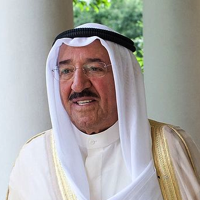It has been frequently noted over the past year that the ongoing turmoil in the Arab world has until now largely spared monarchies in the region. But observers of the region, and its rulers, also know that this state of affairs could suddenly change. As a result, Arab kings and emirs are under pressure to find a new governing formula: reforms that introduce elements of democracy without bringing an end to their rule.
Over a number of decades, the emirate of Kuwait has managed to maintain a measure of stability under a system that combines a strong monarchy and an elected parliament. That system could gradually become a model for other states in the Gulf region as they seek to accommodate popular demands. But first, it has to survive the continuing turbulence of the Arab uprisings -- and the impact of the country’s own recent elections.
Last Sunday, eligible Kuwaiti voters went to the polls to elect a new parliament. The results were a signal that Kuwait has not been immune to the wave of change in the Middle East, including the rise of Islamist parties and the sharpening of sectarian tensions.

